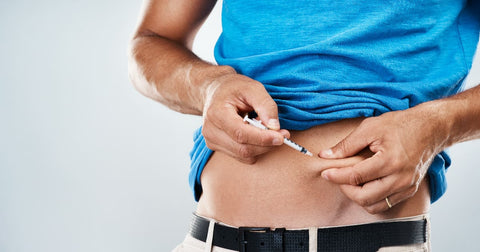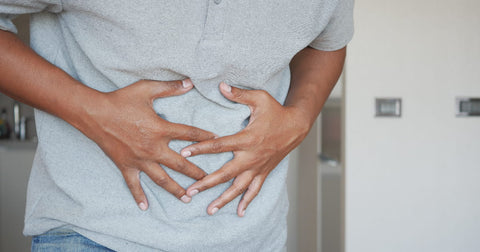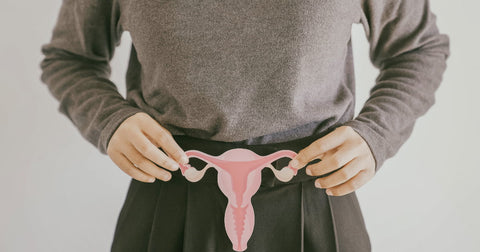Insulin resistance is a common but often silent condition that affects millions of people. When your body's cells become less responsive to insulin, it can lead to a cascade of health problems, including type 2 diabetes. But here's the empowering truth: insulin resistance can often be reversed with the right lifestyle changes and, in some cases, targeted supplements. Let's explore what insulin resistance is, how to recognize its signs, and practical steps you can take to reclaim your metabolic health.

What is Insulin Resistance? Understanding the Hormonal Hurdle
Insulin is a hormone produced by your pancreas that acts as a key, unlocking your cells to allow glucose (sugar) from the food you eat to enter and be used for energy. When insulin resistance develops, your cells become less responsive to this key, leading to higher blood sugar levels and forcing your pancreas to work overtime producing more insulin. Over time, this can exhaust your pancreas and lead to type 2 diabetes.
How Long Does It Take to Reverse Insulin Resistance? It's a Journey, Not a Sprint

The timeline for reversing insulin resistance varies depending on several factors, including:
- Severity: Mild cases might improve faster than more advanced insulin resistance.
- Lifestyle Changes: The degree and consistency of your diet, exercise, and other lifestyle modifications will impact your progress.
- Individual Factors: Your age, genetics, and underlying health conditions can also play a role.
However, research suggests that significant improvements can be seen within weeks to months of adopting a healthy lifestyle.
Can Insulin Resistance Be Reversed Naturally? Yes, You Have the Power!
While medication might be necessary in some cases, many women successfully reverse insulin resistance through lifestyle modifications:
1. Dietary Changes:
- Limit Refined Carbohydrates and Sugars: Opt for complex carbohydrates like whole grains, vegetables, and legumes.
- Increase Fiber Intake: Fiber slows down the absorption of sugar, preventing spikes in blood glucose levels.
- Choose Healthy Fats: Include avocados, nuts, seeds, and olive oil in your diet.
- Moderate Protein Intake: Choose lean protein sources like fish, poultry, beans, and lentils.
2. Regular Exercise:

- Aim for at least 150 minutes of moderate-intensity exercise per week.
- Combine cardio and strength training for optimal results.
- Even small amounts of activity can make a difference.
3. Weight Management:
- Losing just 5-10% of your body weight can significantly improve insulin sensitivity.
- Focus on sustainable weight loss strategies that prioritize a healthy lifestyle.
Supplements to Reverse Insulin Resistance: An Additional Tool

While not a replacement for lifestyle changes, certain supplements may help:
- Magnesium: Studies suggest it can improve insulin sensitivity.
- Chromium: This mineral plays a role in glucose metabolism.
- Berberine: A natural compound that has shown promise in improving insulin resistance.
Food Intolerances: A Hidden Factor in Insulin Resistance?
If you're struggling with insulin resistance despite lifestyle changes, underlying food sensitivities might be contributing to inflammation and making it harder to manage your blood sugar. A food intolerance test can help identify these triggers and allow you to tailor your diet for better metabolic health.
Remember: Taking control of your health is an ongoing journey. By prioritizing healthy habits and seeking guidance from experts, you can reverse insulin resistance and reduce your risk of developing type 2 diabetes.
Frequently Asked Questions:
1. I've been diagnosed with prediabetes. Is it too late to reverse insulin resistance?
No, it's not too late! Prediabetes is a warning sign that your body is becoming insulin resistant, but it's a reversible condition. Making positive lifestyle changes through diet and exercise can significantly improve your insulin sensitivity and prevent progression to type 2 diabetes.
2. How long does it take to reverse insulin resistance?
The time it takes to reverse insulin resistance varies based on several factors, including the severity of your insulin resistance, your dedication to lifestyle changes, and individual factors like genetics and age. However, many people see noticeable improvements in their blood sugar levels and insulin sensitivity within weeks to months of adopting a healthy lifestyle.
3. Are there any specific supplements that can help reverse insulin resistance?
Certain supplements like magnesium, chromium, and berberine have shown promise in improving insulin sensitivity. However, it's important to consult with your doctor or a registered dietitian before taking any supplements, as they can interact with medications or have side effects.
4. I'm trying to eat a healthy diet, but I'm still struggling with insulin resistance. Could a food intolerance be contributing?
Yes, it's possible! Food intolerances can trigger inflammation in your body, making it harder to manage blood sugar levels. Our food sensitivity test can help identify any hidden sensitivities that might be exacerbating your insulin resistance.
5. What kind of exercise is best for improving insulin sensitivity?
A combination of both aerobic exercise (like brisk walking, jogging, or cycling) and strength training is ideal for improving insulin sensitivity. Aim for at least 150 minutes of moderate-intensity exercise per week, spread out over several days.


.png?v=1737390083)
.png?v=1737187409)


